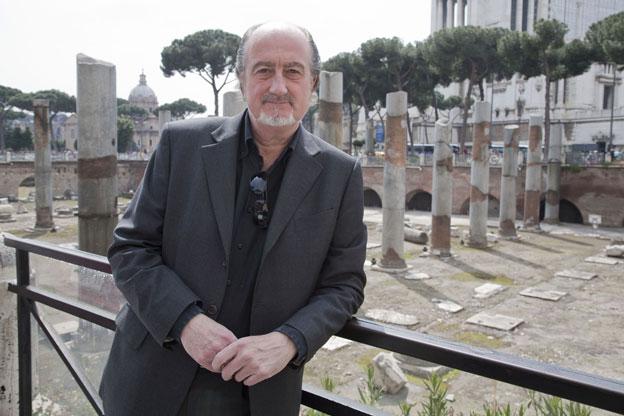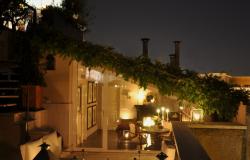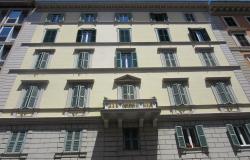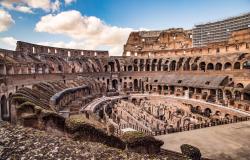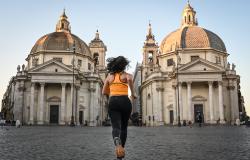In the second part of a series of interviews with those whose job it is to explain Italy to the world, Carol King speaks to John Hooper about his life as a Rome correspondent, and his views on Italy.
How long have you worked in Rome as a correspondent and who do you write for?
A total of 14 years: I’ve been here twice. The first time I covered Southern Europe for The Guardian but was based in Rome. I came back in 2003 and am shared between The Guardian and The Economist.
Do you have a typical day?
No, Italy never stops bringing surprises. But in a sense yes, in that I get up and read the papers using an iPad and then I go into my office at Corriere della Sera. After that, all bets are off. You never know what’s going to happen - halfway through the day there could be a mafia killing or the latest scandal to emerge from the Vatican. The internet is changing everything. Websites are up 24 hours a day, so if I hear on the news that there have been raids on gangsters in Calabria or there’s a late-night political speech and somebody has exploded, I ring the early-morning editor on [The Guardian] website, who may commission me to do a piece straightaway - last week I wrote two pieces before I’d even had a chance to have a shower. The Economist has called me at 11pm because something’s happened at the European Central Bank and I’ve filed at five past one in the morning.
The internet’s a real game changer and there’s less of a typical day than there used to be. There are long days, and they’re closer together because you can’t afford to be up late in the mornings. The Guardian has two editors in Australia, who cover the news when the rest of the world is asleep. For example, the L’Aquila earthquake in Abruzzo in 2009 occurred at 3.32am local time. It would be most sensible to get a couple of hours sleep before heading there, but now you file in the middle of the night.
How do you select which stories to file?
Usually I send a billboard of thoughts and possible stories to The Economist on a Sunday night. They normally come back to me on some point as things can change from Sunday to Wednesday. I send a similar billboard of prospects to The Guardian each morning. But these methods of working are outdated because of the internet. Why match the working day to 9.30am in London when you have a global readership? Publishing is going through a similar process to what the City [of London] went through in the nineties when trading started round the clock, now there’s reporting round the clock.
How have you got your Italian to a level where you can do interviews and translate quotes accurately for a story?
I learned Italian by ear. I was a correspondent [for The Guardian] in Madrid beforeItaly. The Guardian said to me that Italian is very similar to Spanish and that [I’d] pick it up in no time, which is an optimistic view. There are quite important differences in vocabulary, different spellings and an awful lot of words that are different. I read newspapers and picked up Italian by ear. In the early days I sometimes misunderstood and then once I’d checked in the dictionary I found that I wasn’t right at all about [a possible] story. But necessity is the mother of fluency and in a couple of years my Italian became pretty good.
What the biggest challenge you face in explaining events in Italy to your readers?
Italian is a more difficult language than a lot of people realise, the greatest difficulty is to pin things down. It’s a language suited to being less than clear and creating double meanings. To get things clear I feel is like nailing a jelly to a door. It can often be very difficult translating quotes that English speakers will find comprehensible. There are untranslatable words too. The language can be maddeningly illusive and
allusive.
It’s less certain now who your readers are [too]. Over half The Economist’s readership is in the USA, and for The Guardian website, well over a third. So it’s less certain that it used to be regarding cultural reference points. Foreign correspondents take one cultural context and make it comprehensible to another. Now a fair proportion of readers aren’t in Solihull but in San Francisco and it’s a challenge to cope with that. Some issues that may be of little interest to British readers are burning issues somewhere else, and we’re just coming to grips with that.
What’s the most interesting story on Italy you’ve covered?
The one I did for The Observer and The Guardian in 1997 about the sinking of a former RAF boat, the F-147, carrying irregular immigrants.* It was the biggest maritime disaster since Word War II, but no one followed it up. No one followed it in the UK or Italy - only years later when someone at La Repubblica followed it up. The people died when they were moved off a ship onto the boat. I flew down to Reggio Calabria on a hunch and found the ship. I got on board – illegally – and was arrested by the Guardia di Finanza revenue guard. I found the name of the ship looking at the photographer’s photos [of it] later. Using image-enhancement software the name of the ‘phantom ship’ [it had been painted over in white], the Yiohan, came up in front of our eyes: there’s nothing more gripping than that. An hour from deadline I furiously wrote the story that became the front-page lead on The Observer and won an award. La Repubblica later found the F-147 using an ROV underwater robot. The Discovery Channel took up the story and went to [film] the site using the co-ordinates given by La Repubblica and the boat had disappeared.
*Following a collision, the F-147 sank to the bottom of the Malta-Sicily channel at 3am on 26 December 1996, taking at least 283 clandestine migrants from the Indian sub-continent to their deaths.
And what’s been the most shocking story?
The same one. The Abruzzo earthquake was the most affecting story; it got to me the most.
Italy is facing an economic crisis at the moment, so what are your thoughts on its future?
Right now it’s just too difficult to call. First, Italy’s not in total control: the euro could unravel because of what’s done in Greece or Germany, not Italy. And then there’s the politics: if Italy goes into an early election that would be bad. And if, as he has hinted at, [Silvio] Berlusconi leaves the Right that would be worse. And if, as Berlusconi has hinted at, he does so on an anti-euro platform that would be terrible.
What do you like most about Italy and what do you like the least?
 I like the usual things that enchant everyone: benign climate, the world’s most beautiful cities, the warm balmy evenings, eating out in the open and the astonishing degree of help and open-handed support that I get from fellow Italian journalists. What I like least is that this inventive, ingenious and traditionally creative country is stalled and turned in on itself to such a distressing degree. I hope that in the next few years it will shake itself out of this torpor because I’m tired of writing bad news stories about Italy: it’s depressing. Lots of people say, ‘I envy you. You’re in the sun surrounded by beautiful people.’ [Yet] nine years of saying, ‘The economy is stagnant and politicians are corrupt’, it’s wearing.
I like the usual things that enchant everyone: benign climate, the world’s most beautiful cities, the warm balmy evenings, eating out in the open and the astonishing degree of help and open-handed support that I get from fellow Italian journalists. What I like least is that this inventive, ingenious and traditionally creative country is stalled and turned in on itself to such a distressing degree. I hope that in the next few years it will shake itself out of this torpor because I’m tired of writing bad news stories about Italy: it’s depressing. Lots of people say, ‘I envy you. You’re in the sun surrounded by beautiful people.’ [Yet] nine years of saying, ‘The economy is stagnant and politicians are corrupt’, it’s wearing.
What’s your favourite café or restaurant in Rome and why?
My favourite haunt for lunch remains top secret. The Enoteca Ferrara , hidden away in Trastevere, has cavernous rooms, a restaurant, wine bar and osteria all in the same complex, and is great.
If you could work anywhere else as a correspondent where would it be and why?
I never intended to work in Southern Europe. Originally, I wanted to work in Africa but I probably wouldn’t want to go back at this stage of my life. If I had a choice right now it would be Istanbul: it’s a really big capital, I like the country - it’s big and beautiful - the people and Turkey is interesting. Also, Rio de Janeiro, Brazil because Brazil has come on at such a rate to become a world power: it would be a terrific
antidote to the stagnation that has gripped Italy and [to be] somewhere so dynamic would be really interesting.
 John Hooper is the Rome-based correspondent of The Economist and The Guardian. At the age of 18, he travelled to Nigeria during its civil war to make a TV documentary. Hooper went on to become a foreign correspondent, working for – among others – The Economist, The Guardian, The Observer, BBC, NBC and Reuters. He has reported from more than 30 countries, including various war zones such as Kosovo and Afghanistan. He brought to light the so-called ‘Ship of Death’ migrant-trafficking disaster of 1996 and was part of The Observer’s award-winning team that investigated its aftermath. His book, The Spaniards
John Hooper is the Rome-based correspondent of The Economist and The Guardian. At the age of 18, he travelled to Nigeria during its civil war to make a TV documentary. Hooper went on to become a foreign correspondent, working for – among others – The Economist, The Guardian, The Observer, BBC, NBC and Reuters. He has reported from more than 30 countries, including various war zones such as Kosovo and Afghanistan. He brought to light the so-called ‘Ship of Death’ migrant-trafficking disaster of 1996 and was part of The Observer’s award-winning team that investigated its aftermath. His book, The Spaniards (1986), won the Allen Lane Award for a best first work of non-fiction in 1987. It has since been revised and updated as The New Spaniards
(2006). Hooper is the author of the long-form journalistic mini-book, Fatal Voyage: The Wrecking of the Costa Concordia
(2012). His website is at www.john-hooper.com, he is on Twitter as @john_hooper and Facebook.
